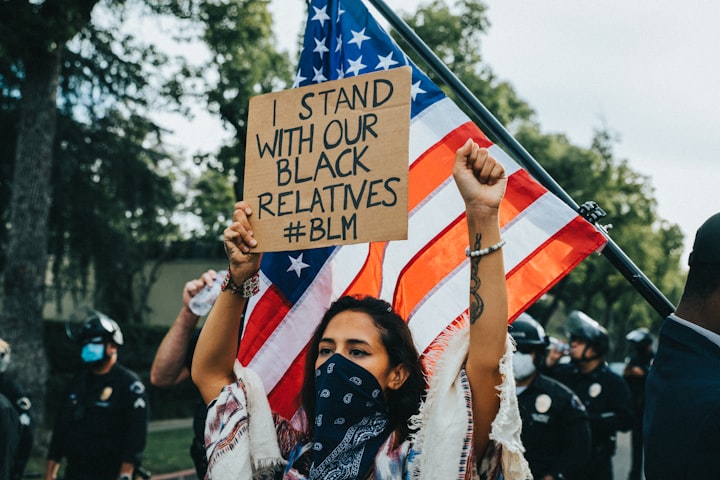9 ways to make your political tweets go viral
How to plan a political campaign using Twitter
Twitter has been the home for political debate since its launch in 2006, but we only witnessed its true potential for social change with the rise of #BlackLivesMatter. This started by protesting the death of teenager Trayvon Martin in 2012, but has since grown to become a worldwide movement.
Other inspiring Twitter movements include #MeToo, the hashtag that aims to bring about change following the Harvey Weinstein sexual harassment allegations.
So there has always been a healthy amount of political campaigning on Twitter. But how, as a keyboard warrior, do you get noticed and eventually bring about the social change you desire?
Here are a few tips to get your tweets about politics to stand out in this insanely noisy environment, where everyone is shouting at each other, and nobody ever listens.
1) Predicting viral success
It’s impossible to predict how your pithy or amusing political tweet will land with any certainty. You will no doubt want your tweets to get ‘likes’ - i.e. they need to ‘resonate’ with your followers. But they also need to be actionable. You want to get your message 're-tweeted' i.e. to go 'viral' just like #MeToo did. Quick tip: you could simply ask your followers to RT your message, if they agree with you!
So how can you improve your chances of viral success? It is stating the obvious, but having only a few followers won’t help you. Most successful political tweeters can describe a tipping point, maybe when they reached a modest 1,000 followers, when they got noticed.
Dr. Mark Pack writes in 101 Ways to Win An Election: ‘It is the tortoise and not the hare that wins in online campaigning.’ He says you need to build a fan base ‘one effort at a time and over the long haul.’ So set a schedule of when you will tweet and try sticking with it.
Tweets with images get more RTs. Linking to newspaper articles works well. Tweeting exclusive content, particularly video footage, can really supercharge your social profile. Getting an existing social media influencer, celebrity or politician to back your cause can also lead to rapid viral success.
2) Go negative
You won't get anywhere by sitting on the fence, but you probably know that, right? You need a clearly defined opinion and never change it. No matter how extreme your view, you are always right, of course! It is everyone else on Twitter who is wrong. Seriously, discussing the nuances of a debate in a fair and balanced way just doesn’t doesn’t cut it. Sad, but true.
A recent study by academics at the University of Jaén in Spain studied 46,000 tweets sent by 25,000 accounts over the course of one week. All posts were debating the independence referendum called by the Catalan regional government in 2017, which was highly divisive. It found that tweets containing negative opinion-bearing statements did better than those that are positive.
Politicians standing for election often want to put a positive image forward via their own social media accounts. However, they may welcome the support of guerrilla tweeters, like you, who can play a much dirtier political game by attacking their political rivals.
3) Twitter isn’t too ‘woke’ for the right
Some on the conservative / right seem to think that Twitter is dominated by ‘woke’ liberals, a bit like your author! They complain they feel unable to express their views without being ‘de-platformed.’ They ignore the fact that the very 'anti-woke' Donald Trump tops the list of the most followed heads of state in the world. Narendra Modi is in second place, the Indian leader who isn't known for his liberal outlook.
In 2019 some prominent conservatives encouraged their followers to abandon Twitter as a lost cause and set up a new home on Parler, which describes itself as a home for free speech. That was until it was banned by Apple, Google and Amazon.
4) Start a culture war and get yourself noticed
You need to locate a culture war topic which is highly divisive for society and leads to polarised views. It really doesn't get much better than the debate in the UK about transgender rights - cue lots of angry debate about who should be allowed to access which type of toilet facility.
It is an explosive topic, and therefore ideal for Twitter, because it is an issue that splits progressives, much to the delight of their conservative opponents.
The right is always on the lookout for the next culture war. The debate over removal of statues of former slave traders is another example that hit the headlines in the USA and then made its way to the UK. Progressives are still not skilled at defusing culture war debates.
5) 'Hashtag flood' your opponents
You’ve only really made it in politics if a hashtag that you created starts trending. So what to do if your rival is getting all the spotlight? Hashtag flooding is the act of hijacking a successful hashtag of your political opponents to change its meaning.
When George Floyd was killed in May 2020, K-pop fans flooded racist hashtags to troll participants with fun music videos, memes and photos. This worked to frustrate those indulged in hate-fuelled conversations and was also pretty funny to watch.
6) Stay focussed
A popular hashtag in the UK, #StopFundingHate, gained momentum when the Daily Mail newspaper published negative news about immigrants arriving in the country. The campaign was on a mission to put pressure on brands to stop advertising with newspapers that were allegedly fuelling hatred to do with migrants.
It worked. An early success was when LEGO, the toy maker, pulled its advertising from the Daily Mail. It tweeted: "We have finished the agreement with the Daily Mail and are not planning any future promotional activity with the newspaper."
7) 'Fish where the fish are'
There is a saying in angling that you ‘fish where the fish are’. Twitter is popular for news in the USA and UK, but it’s even more popular as a tool in Turkey and Kenya. The Reuters Institute Digital News Report 2020 surveyed people in 40 countries about where they got their news from. In Kenya a massive 40 percent of respondents used Twitter and in Turkey it was 30 percent. The UK and USA also used Twitter for news, but rivals such as Facebook were still more popular. You may need to adjust your political campaigning methods depending on where your audience is. Instagram is rising in use as a political tool.
8) Make friends with allies
In 2018, the hashtag #FBPE started appearing in the UK. It stands for ‘follow back, Pro-European Union’. The aim was to build an online community in the UK that was opposed to the UK leaving the European Union. This is simply a pro-EU version of the old ‘follow back Friday’ trend and to this day is a useful way of spreading news between supporters quickly.
9) Real world campaigning beats social media most of the time
Lastly, be realistic. Has anyone ever changed their mind about politics because they read a tweet? Probably not. Political parties know social media can only do so much to bring about change. However, it remains an important tool in your campaigning box.
Too easily social media becomes a 'filter bubble' of activists, who spend their days saying how much they agree with each other. Where it is much weaker is as a tool to influence undecided voters or those with moderate views. In fact these groups can be very hard to reach via any method offline or online.
Older voters and those who are less technically literate can also feel excluded from social media platforms.
So your Twitter use needs to be combined with other campaigning for change that you do in the real world. So get out there and do door-to-door canvassing or phone voters in your area for a local political candidate. It could also be arranging street protests, leafletting or attending meetings with local officials.
Where Twitter succeeds is for rallying supporters who are already committed to the cause and keeping them energised. But when it comes to converting undecided people to your cause, repeat after me: 'Twitter isn't real life'.
About the Creator
Steve Hill
Freelance writer about technology, business and politics based in London, UK.







Comments
There are no comments for this story
Be the first to respond and start the conversation.